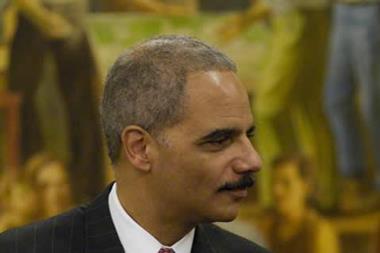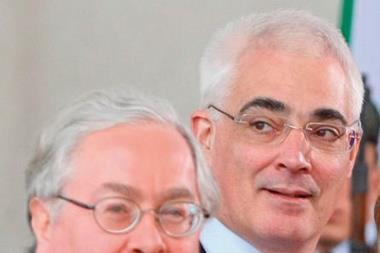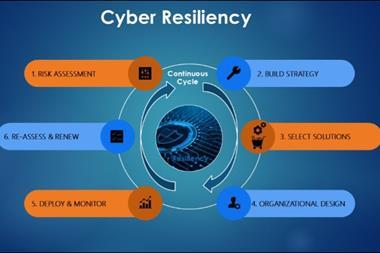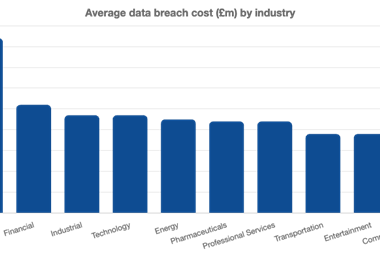With new brooms sweeping clean and increased powers, expect greater scrutiny warn Kevin Roberts, Randall Fons, and Brian Neil Hoffman
Securities regulators in the US, as well as in the UK and other European Union member states, have reinvigorated their enforcement efforts. Through a combination of new personnel and an intensified approach, companies doing business on both sides of the Atlantic face greater scrutiny from the US Securities and Exchange Commission (SEC), the UK Financial Services Authority (FSA), the UK Serious Fraud Office (SFO), and from the European Commission than in recent years. Now, more than ever, companies should use strategies that minimise the enforcement risks.
New personnel
New faces fill many of the top enforcement positions at the SEC, FSA, and SFO. These individuals bring not only a wealth of prior experience in securities enforcement and prosecution, but also an appetite for rigorous enforcement programmes going forward. Likewise, the EC will soon see new leadership.
In the US, virtually all of the commissioners joined the SEC in mid-2008 or early 2009, including chairwoman Mary Schapiro who joined in January 2009 after a career with various securities and commodities regulators. The SEC’s division of enforcement also has a new director – Robert Khuzami, a former federal prosecutor who joined in February 2009 – and a new deputy director – Lorin Reisner, another former prosecutor who joined in August 2009. Khuzami promised that ‘the staff and I will relentlessly pursue and bring to justice those whose misconduct infects our markets, corrodes investor confidence and has caused so much financial suffering.’
In the UK, David Kirk, a former director of the Fraud Prosecution Service, joined the FSA as chief criminal counsel in March 2009. Margaret Cole, the FSA’s director of enforcement, and Kirk both noted the FSA’s commitment to bringing more criminal prosecutions. Vivian Robinson QC, a noted criminal specialist, joined the SFO as general counsel in spring 2009.
At the EU level, Neelie Kroes, EC commissioner for competition, is due to step down at the end of this year. Any successor is likely to build upon her combative approach.
Intensified approach
The EC has sought to unify and strengthen its regulatory framework. And the SEC, FSA, and SFO have sought to deliver more, faster, and harsher justice than in recent years.
• Unified and stronger framework The EC introduced several proposals designed to address purported weaknesses in the EU’s supervisory framework, which ‘remains fragmented along national lines despite the creation of a European single market more than a decade ago and the importance of pan-European institutions.’ The proposals would create a new European Systemic Risk Board (ESRB) to monitor and assess risks to the stability of the financial system as a whole and to provide early warning of potential systemic risks. The ESRB would have the power to issue recommendations and warnings to member states (including national supervisors, such as the FSA), which must comply or explain why they have not done so. This measure will likely heighten the FSA’s scrutiny in the UK.
Furthermore, the EC has put forward proposals to strengthen and improve the Market Abuse Directive to deter and sanction insider dealing. This directive would simplify certain information requirements, adjust application of specific rules in exceptional circumstances (such as when the issuer’s viability is at stake), and incorporate other amendments designed to promote regulatory efficiency. The directive forms part of a wider plan to strengthen the EU regulatory framework for financial services, as set out in the communication on ‘Driving European Recovery’. Once finalised, the directive would apply to insider dealing cases throughout Europe including the UK.
• Increased number of cases The FSA emphasised that a ‘strong and visible enforcement function’ is ‘crucial’, and that the agency ‘expect[s] to see significant enforcement activity’ in 2009 and 2010.These are not mere platitudes, as proved by multiple investigations of and arrests for suspected insider dealing. The SFO similarly promised ‘to go out there and find cases’.
The SEC likewise delivered more enforcement actions. In the first seven months of 2009, it opened 525 investigations (compared to 475 in the same period in 2008), issued 275 formal orders (compared to 126 in the same period in 2008), and filed 52 emergency temporary restraining orders (compared to 21 in the same period in 2008). The SEC shows no signs of slowing this pace in 2010.
• More speed and focus The SEC has promised to “be as swift as possible. A sense of urgency is critical.’ Backing this up, the SEC streamlined its process for issuing a formal order of investigation – a necessary step before issuing subpoenas. Subpoena power can now be granted by the head of each regional office, as opposed to requiring action by some or all of the commissioners. The SEC implemented, and is continuing to implement, other changes to further speed the investigatory process.
The SEC also promised to streamline its investigations. Rather than ‘turning over every stone’, staff attorneys will investigate and bring cases narrowly focused on specific issues and individuals. To promote staff attorney expertise, the division of enforcement reorganised into six specialty groups: asset management; market abuse; structured and new products; Foreign Corrupt Practices Act; municipal securities and public pensions, and subprime. While companies and individuals under investigation may benefit from these changes, they can also expect that the SEC will demand quick responses and be less flexible about the scope of requests.
The SFO has a new power that facilitates its rapid action - it may seek an order for civil recovery of property obtained through unlawful conduct. The SFO, thus, can take advantage of lower civil proof standards and need not commence more time-consuming and difficult-to-prove criminal proceedings.
Tempering the greater speed, the SFO also will seek to be more focused. The SFO’s Richard Alderman explained: ‘being focused is about concentrating on serious, complex cases where we can make a difference. It is about finding the right cases; investigating them with multi-disciplinary teams consisting of top-level investigators, lawyers and IT experts; and then bringing these cases to a successful prosecution.’
• Cases against individuals Agencies on both sides of the Atlantic have shown a commitment to pursing individuals responsible for wrongdoing. For example, the SEC settled with a company for alleged improper accounting and disclosure practices and – two years later, in 2009 – filed a case against the former executives allegedly responsible for the company’s actions. Likewise, in July 2009, the SEC filed a settled action claiming that two officers were liable for their company’s alleged Foreign Corrupt Practices Act (FCPA) violations solely because the officers were alleged to be control persons over the company’s internal controls and books and records.
The UK trend is similar. The FSA has made it clear that ‘[t]aking tough enforcement action against individuals, for integrity or competency failures, is … a critical component of our credible deterrence philosophy.’ For example, in April 2009, a panel upheld the FSA’s decision to penalise a CEO for choosing ‘not to exercise his power of veto to stop what should have been seen to be an obviously questionable deal from going ahead.’
• Global reach The SEC, FSA, and SFO all subscribe to the view that fraud knows no national boundaries, and have structured their enforcement programmes accordingly. These regulators have entered into numerous agreements, as well as ad hoc arrangements, with other international enforcement agencies under which they agree to share information.
• Greater consequences The ramifications of the SEC, FSA, or SFO bringing a case are now greater than ever.
Although the median value of settlements with the SEC had declined for the past two years, the SEC, in early 2009, ended its two-year ‘penalty pilot’ programme. The programme’s end likely will result in more penalties in greater amounts because it puts the division of enforcement, as opposed to the commissioners, back in control of settlements.
Well-publicised 2009 FCPA settlements with the SEC (and the Department of Justice, which jointly enforces the FCPA) demonstrate that disgorgement of profits earned from business obtained through illegal bribery of foreign government officials, and civil and criminal sanctions can cost hundreds of millions of dollars.
The FSA’s CEO warned that ‘people should be very frightened of the FSA ... To achieve credible deterrence, wrongdoers must realise that they face a real and tangible risk of being held to account and expect to suffer meaningful consequences. [The FSA] will seek to ensure that the sanctions we impose are fixed at levels that are sufficient to deter potential wrongdoers and, where necessary, we will increase penalties to achieve this.’ In July 2009, the FSA proposed a new framework for ascertaining penalties in enforcement cases. The framework involves consideration of a number of factors, but the process appears likely to yield a minimum £100,000 penalty against defendants in most cases.
The FSA’s recent successful criminal insider dealing prosecution of a company’s general counsel and his father-in-law, to whom the counsel passed confidential information about a takeover, will only embolden the agency in continuing its tough approach towards market abuse.
In addition, the SFO gained another new power that increases the potential cost of wrongdoing: serious crime prevention orders. These allow prosecutors to obtain court orders that regulate the future conduct of those prosecuted. For example, a twice-convicted fraudster was ordered not to conduct investment and financial management business for four years after his release from prison, and was subject to other restrictions on his involvement in the industry.
Strategies to minimise risks
Firms doing business in the US, UK, or Europe should take steps to minimise the ramifications of this renewed enforcement emphasis.
• Establish a global compliance system Regulators continually urge companies to ensure that they have a strong compliance-oriented tone at the top. These internal controls must reach branch offices and subsidiaries in all locations around the globe. Two enforcement actions demonstrate this necessity.
- In January 2009, the FSA imposed the largest financial-crime-related fine to date (£5.25m) against Aon Ltd because it failed to establish and maintain an effective controls system to counter the risks of overseas bribery and corruption. The FSA commented that the fine ‘sends a clear message to the UK financial services industry that it is completely unacceptable for firms to conduct business overseas without having in place appropriate anti-bribery and corruption systems and controls.’
- On 29 May 2009, a Maryland-based parent company settled alleged primary violations of the FCPA asserted by the SEC, in part because the parent company did not have sufficient controls to detect alleged illegal bribes approved and paid by a California-based subsidiary to Egyptian government officials in violation of the FCPA.
• Account for current market conditions Regulators have exhorted firms to adjust their established compliance programmes to adjust to changed economic circumstances. Although particularly applicable to regulated entities, public companies should follow this advice as well. Ensuring appropriate disclosures, especially about the firm’s financial stability as well as the stability of major suppliers and customers, and about the firm’s realistic prospects, is essential. Companies should also refocus on ‘bread and butter’ issues like revenue recognition, executive compensation, and inventory valuation.
• Benefits of cooperation and voluntary remediation If issues arise, swift remediation and cooperation with regulators may help mitigate ramifications. The SEC has reaffirmed its commitment to granting ‘cooperation credit’ to defendants that self-report violations, cooperate with investigations, and voluntarily undertake remediation. The agency will consider various factors when assessing cooperation, including the nature and scope of the misconduct, the individuals involved, and efforts to remediate the issues. The SEC is exploring additional ways to foster cooperation by individuals, through published policy statements, oral non-prosecution assurances, facilitating immunity requests, and/or deferred prosecution agreements.
The SFO highlighted the benefits of cooperation through a discussion of the Balfour Beatty plc case. The company voluntarily disclosed to the SFO inaccurate accounting records arising from certain payment irregularities that occurred during a subsidiary’s completion of a project. Balfour Beatty cooperated throughout the SFO’s investigation and, in addition to monetary payments, agreed to implement certain compliance systems and to submit them to an external monitor. Perhaps partly due to the cooperation, the SFO concluded that prosecution of the company and individuals was not necessary. The FSA likewise focuses on voluntary remediation as part of its ‘outcomes-based regulation’ approach.
In conclusion
In some ways, the SEC’s, FSA’s, SFO’s and EC’s renewed emphasis on enforcement is the start of a new era. In other ways, though, it is a reversal of certain trends over the past several years that had the effect of marginalising enforcement efforts. Nevertheless, companies doing business in on both sides of the Atlantic should take steps to help prevent, and to limit the ramifications of, government actions, including seeking the advice of experienced outside counsel.
Kevin Roberts and Randall Fons are partners in Morrison & Foerster’s London and Denver offices, respectively. Brian Neil Hoffman is a senior associate in Morrison & Foerster’s Denver office. Roberts, Fons, and Hoffman practise in the firm’s securities litigation, enforcement and white-collar defence group. Emails: kroberts@mofo.com; rfons@mofo.com; bhoffman@mofo.com, www.mofo.com



















No comments yet